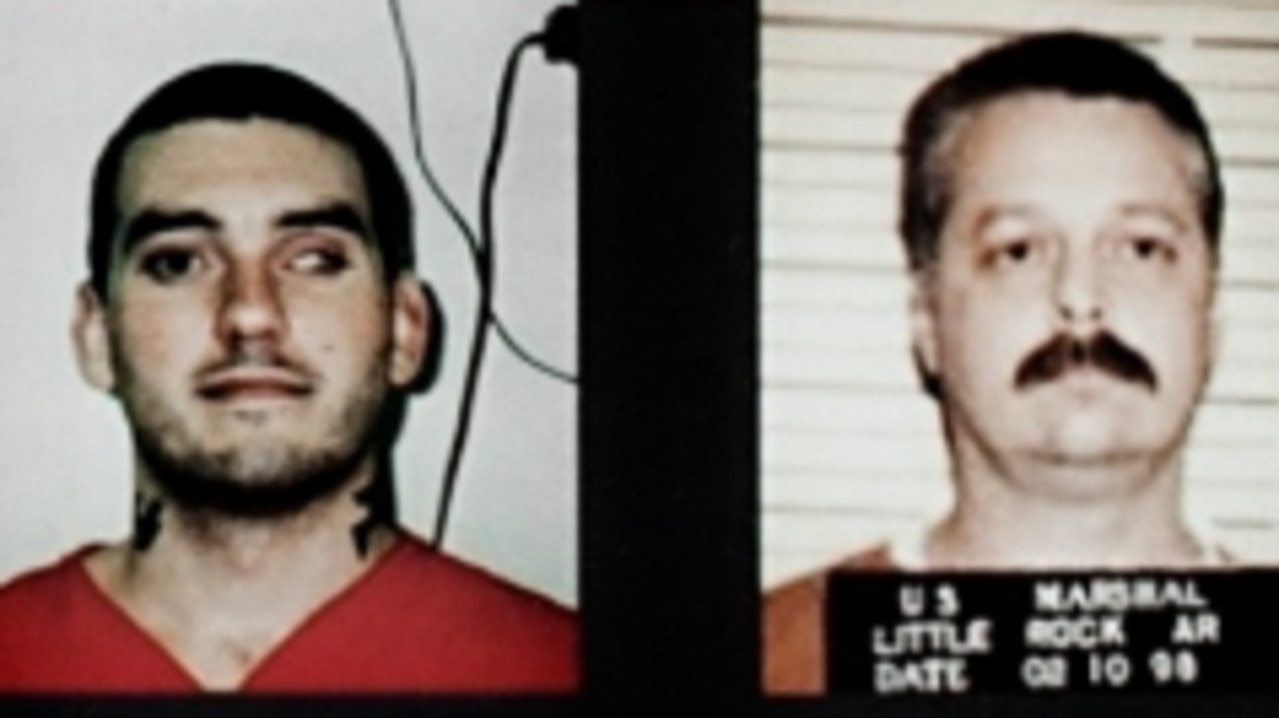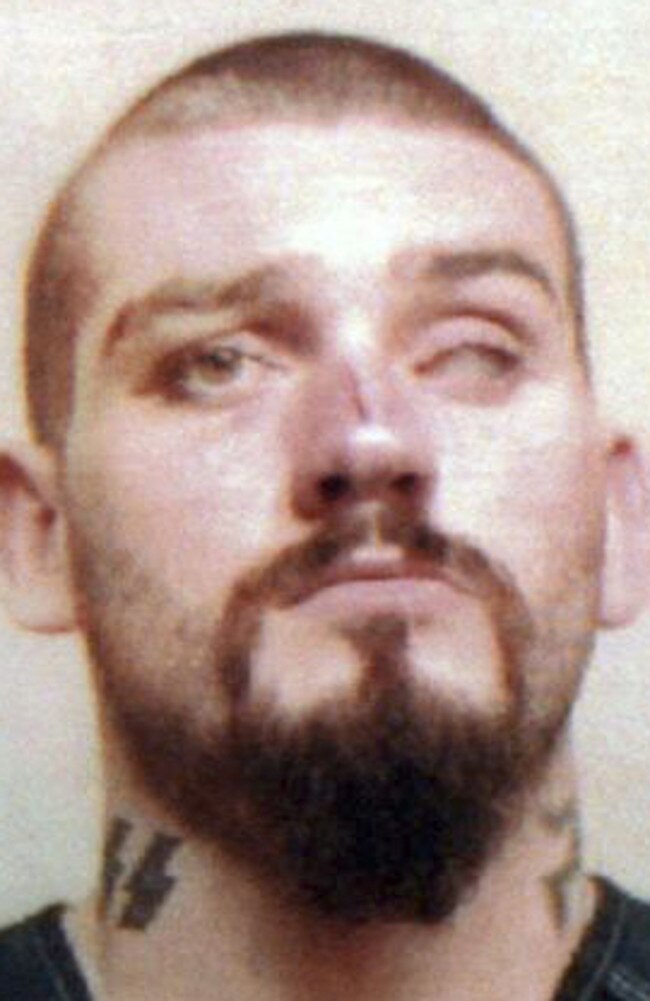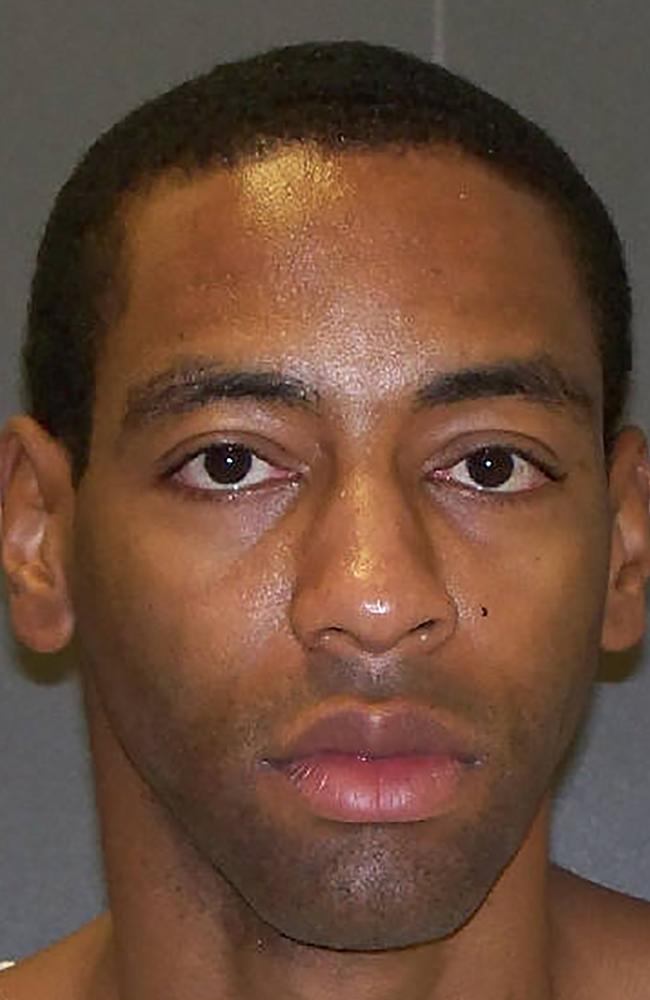Texas inmate faces execution for killing prison supervisor
A woman fighting to save the life of the man who tortured and murdered three of her family members says she “doesn’t want” him to be executed.
A woman whose three family members were tortured and murdered is making a desperate, last-ditch effort to spare their killer from execution in the US.
Daniel Lewis Lee, a one-time white supremacist, was convicted in 1999 over the murders of Bill Mueller, his wife Nancy and her eight-year-old daughter, Sarah Powell.
Lee was scheduled to be put to death in Indiana last Monday, but the Supreme Court declined to allow federal executions to go forward for the moment, saying – “in light of what is at stake” – the block on executions should be reviewed by an appeals court.
The decision has delayed the execution of Lee and three other men for at least several more weeks as federal judges consider whether a new lethal injection protocol proposed by the Government passes legal muster.
Meanwhile, Nancy Mueller’s mother, Earlene Peterson, 80, has stepped up her fight to save the life of the man who brutally murdered her daughter, son-in-law and granddaughter, saying she “doesn’t want” him to be executed.
“I can’t see how executing Daniel Lee will honour my daughter in any way,” Ms Peterson said in a video posted online.
“In fact, kind of like it dirties her name because she wouldn’t want it and I don’t want it.”


A court previously heard that Lee and his accomplice Chevie Kehoe used a stun rod on their victims and bound them with plastic ties and handcuffs. They taped plastic bags over their heads and sealed the bags with duct tape, suffocating them, before weighing their bodies down with rocks and waiting for them to submerge in the Illinois Bayou lake. The trio’s bodies were found dumped in June 1996, six months after they disappeared.
Ms Peterson cited religious beliefs and disparities in the legal case and sentencing for her stance on the death penalty. Kehoe, the man seen by many as the mastermind of the crime, was sentenced to life in prison. Lee’s death will mark the first federal execution in nearly 17 years if the execution goes ahead.

Earlier this year, Attorney-General William Barr announced that the Trump administration would revive the use of capital punishment at the national level. He attributed it to a debt owed by the Justice Department “to the victims and their families”.
According to opinion polls, support for the death penalty has declined in recent years and is down to around 54 per cent from 80 per cent in the early 1990s.
Only a handful of states, mainly in the US south, still carry out executions. Of the 25 executions in the US in 2018, 13 were in Texas.
TRAVIS RUNNELS
Travis Runnels, 46, is scheduled to be executed by lethal injection in Texas on Wednesday evening local time for the 2003 murder of 38-year-old prison worker Stanley Wiley.
His lawyers are asking the US Supreme Court to intervene, alleging a prosecution witness at his trial provided false testimony regarding his prison classification if a jury chose life without parole rather than a death sentence. Runnels’ lawyers also claim no defence was presented at his 2005 trial as his legal team advised him to plead guilty and then called no witnesses in a trial that lasted two days.
Janet Gilger-VanderZanden, one of his representatives, said Runnels has become a changed man during his 14 years on death row.
“There is true and authentic remorse for the death of Mr Wiley. There are no excuses, rather there is a commitment to finding some kind of light in what was once a world of only darkness,” Ms Gilger-VanderZanden said.

Prosecutors said Runnels slashed Mr Wiley’s throat at the Texas Department of Criminal Justice Clements Unit in Amarillo state prison because he didn’t like working as a janitor at the shoe factory. They said Runnels had wanted to transfer to a job at the prison barber shop and was angry at Mr Wiley because that hadn’t happened.
Runnels had been serving a 70-year sentence for an aggravated robbery conviction in Dallas when he killed Mr Wiley with a knife used to trim shoes. The factory makes shoes for inmates in the state’s prison system.
Runnels approached Mr Wiley from behind, pulled his head back and used enough force for the knife to go through his trachea and cut the supervisor’s spinal cord.
“It was cowardly,” prosecutor Randall Sims told jurors at Runnels’ trial.
If the execution goes ahead, Runnels would be the 22nd inmate put to death this year in the US and the ninth in Texas.
PRIOR REQUESTS DENIED
Lower courts and the Texas Board of Pardons and Paroles have turned down requests by Runnels’ lawyers to stop his execution.
Three inmates who were convicted in the deaths of state correctional officers or other prison employees have been executed since 1974, while three others remain on death row, according to Texas Department of Criminal Justice. Mr Wiley, who grew up in the Texas Panhandle city of Amarillo, began working as a state corrections officer in 1994. He was later promoted to a supervisory position.
Inmate Bud Williams Jr, who worked at the shoe factory, testified that Mr Wiley “was a good guy”. At his trial, Runnels’ lawyers didn’t present any witnesses or evidence, including information about Runnels’ troubled childhood and family history of drug and alcohol abuse, Ms Gilger-VanderZanden said.
In their petition to the Supreme Court, Runnels’ lawyers argued his death sentence was mainly due to the testimony of prison expert A.P. Merillat, who told jurors that inmates like Runnels could not be held in a secure environment if sentenced to life in prison without parole.
The Texas Court of Criminal Appeals has previously overturned the death sentences of two other inmates, in 2010 and 2012, after ruling that jurors had been given incorrect information from Merillat.
The Texas Attorney-General’s Office pointed to assaults by Runnels on other guards after Mr Wiley’s death, including throwing faeces and a light bulb at them, as evidence he was a future danger and merited a death sentence. In his clemency petition to the Texas Board of Pardons and Paroles, Runnels included letters from more than 25 individuals from around the world who said he had worked to make amends for what he did.
“He has become a light that shines bright even in the darkest of spaces. The tragedy that he is responsible for will only be compounded if his valuable light were to be extinguished,” Kristin Procanick, from Syracuse, New York, wrote in one of the letters.
– with wires



